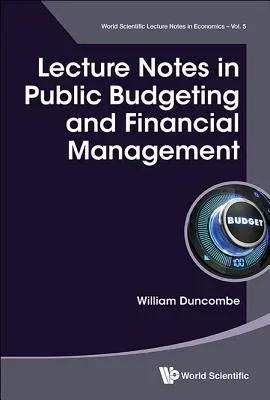William Duncombe
(Author)Lecture Notes in Public Budgeting and Financial ManagementPaperback, 29 August 2018

Qty
1
Turbo
Ships in 2 - 3 days
Only 3 left
Free Delivery
Cash on Delivery
15 Days
Free Returns
Secure Checkout

Part of Series
World Scientific Lecture Notes in Economics
Part of Series
World Scientific Lecture Notes in Economics and Policy
Print Length
336 pages
Language
English
Publisher
World Scientific Publishing Company
Date Published
29 Aug 2018
ISBN-10
9813145900
ISBN-13
9789813145900
Description
Product Details
Author:
Book Format:
Paperback
Country of Origin:
SG
Date Published:
29 August 2018
Dimensions:
22.86 x
15.24 x
1.78 cm
ISBN-10:
9813145900
ISBN-13:
9789813145900
Language:
English
Pages:
336
Publisher:
Series:
Weight:
449.06 gm